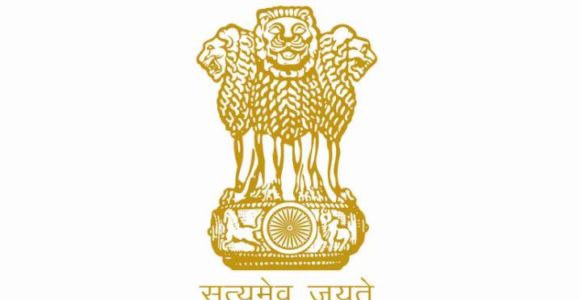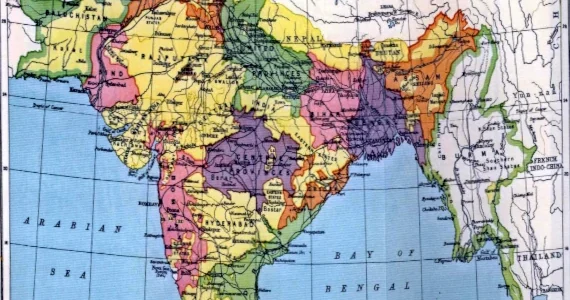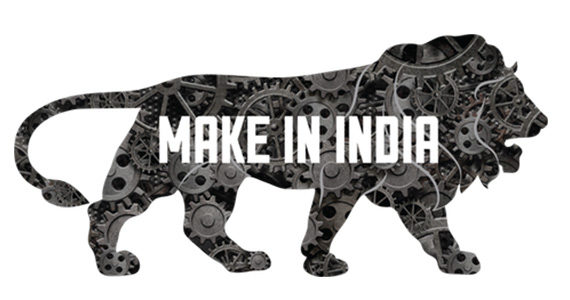
Ministry of Agriculture and Farmers Welfare
The Ministry of Agriculture and Farmers Welfare is a key department of the Government of India responsible for the formulation and implementation of policies and programs related to agriculture, farming, and welfare of farmers. Its primary mission is to ensure food security, sustainable agricultural development, and the well-being of farmers. Here is an overview of the ministry:
Key Functions and Responsibilities:
- Agricultural Policy Formulation: The Ministry is responsible for drafting agricultural policies that are aimed at increasing the productivity and sustainability of the agricultural sector. It also focuses on food security and the improvement of agricultural practices.
- Promoting Agricultural Research and Education: It oversees agricultural research, education, and innovation to make farming practices more efficient and sustainable. This includes promoting the work of institutions such as the Indian Council of Agricultural Research (ICAR).
- Support to Farmers: The Ministry implements welfare programs and schemes to improve the socio-economic condition of farmers. This includes providing financial support, insurance, and market access to farmers.
- Regulation of Agricultural Markets: It plays a role in managing agricultural markets, regulating the prices of essential commodities, and ensuring that farmers receive fair prices for their produce.
- Land Use and Irrigation: The Ministry works on policies related to land use, improving irrigation systems, and ensuring the efficient management of water resources for agriculture.
- Sustainability and Climate Change: It supports sustainable agricultural practices, including organic farming, climate-smart agriculture, and the promotion of agroforestry.
- Agri Infrastructure and Development: The Ministry supports rural development initiatives like building infrastructure such as cold storage chains, warehouses, and transportation systems for agricultural goods.
- Agricultural Schemes and Initiatives: Several schemes such as the Pradhan Mantri Fasal Bima Yojana (PMFBY), Soil Health Management, and National Food Security Mission are operated under the Ministry to help farmers financially, manage risks, and enhance agricultural productivity.
Departments Under the Ministry:
- Department of Agriculture, Cooperation, and Farmers Welfare: This department focuses on agricultural production, farmer welfare, cooperation, and rural development.
- Department of Agriculture Research and Education (DARE): Responsible for promoting agricultural research and education.
- Department of Animal Husbandry and Dairying: Focuses on animal health, livestock production, and dairy development.
- Department of Fisheries: Responsible for the development of the fishing industry in India.
Key Ministers:
- Minister of Agriculture and Farmers Welfare: The Cabinet Minister who heads the Ministry.
- Minister of State for Agriculture and Farmers Welfare: The Junior Minister assisting the Cabinet Minister in his responsibilities.
Current Minister (as of 2025):
- Shri Narendra Singh Tomar: He has held the position of Minister of Agriculture and Farmers Welfare in the Narendra Modi-led government.
Major Initiatives and Schemes:
- Pradhan Mantri Krishi Sinchayee Yojana (PMKSY): To improve irrigation facilities.
- National Agriculture Market (eNAM): To promote transparent online trading and market access.
- Soil Health Management: Ensuring the maintenance of soil fertility and promoting sustainable farming practices.
- PM Kisan Scheme: A direct cash transfer program for farmers.
Key Objectives of the Ministry:
- Improving Agricultural Productivity: Through better technology, research, and practices.
- Reducing Farmer Distress: By ensuring higher incomes, improving market access, and reducing input costs.
- Promoting Sustainability: By encouraging organic farming, water conservation, and efficient land use.
Challenges:
- Climate Change: Adapting agriculture to the changing climate and unpredictable weather patterns.
- Farmer Debt: Addressing the issue of indebtedness among farmers, which leads to agrarian distress.
- Market Access: Ensuring that farmers get fair prices and access to national and international markets.
This ministry is central to India’s agricultural policies and the livelihood of its vast farming community.
Educational Institute Run by this Ministry
The Ministry of Agriculture and Farmers Welfare oversees several educational and research institutions that focus on agricultural education, research, and training. These institutions play a vital role in improving agricultural practices, enhancing productivity, and providing skill development for farmers. Here are the key educational institutes run by the ministry:
1. Indian Council of Agricultural Research (ICAR)
- Overview: ICAR is the apex body responsible for coordinating agricultural research and education in India. It is one of the largest agricultural research organizations in the world.
- Key Role: ICAR conducts advanced research in various areas of agriculture, including crop production, animal husbandry, agricultural engineering, and post-harvest technology.
- Institutions under ICAR: ICAR oversees more than 100 research institutes and agricultural universities, such as:
- National Dairy Research Institute (NDRI)
- Indian Agricultural Research Institute (IARI)
- Central Institute of Fisheries Education (CIFE)
2. National Institute of Agricultural Extension Management (MANAGE)
- Overview: MANAGE is an autonomous institution under the Ministry of Agriculture and Farmers Welfare. It is dedicated to promoting agricultural extension services and rural development through capacity building.
- Key Role: The institute offers training, education, and research programs related to agricultural extension, management, and rural development.
3. National Institute of Plant Health Management (NIPHM)
- Overview: NIPHM is an educational institute focused on training professionals in plant health management, integrated pest management, and plant quarantine.
- Key Role: It provides training and research in pest control, plant protection, and biosecurity to enhance agricultural productivity.
4. Indian Veterinary Research Institute (IVRI)
- Overview: Located in Bareilly, Uttar Pradesh, IVRI is one of the leading veterinary research institutions in India.
- Key Role: IVRI conducts research in veterinary science and animal husbandry, and it offers educational programs in veterinary medicine and animal health management.
5. National Institute of Food Technology Entrepreneurship and Management (NIFTEM)
- Overview: NIFTEM is a premier institution focused on food technology and management education.
- Key Role: The institute offers undergraduate, postgraduate, and doctoral programs in food science and technology, along with research in food processing, quality assurance, and entrepreneurship.
6. Central Institute of Agricultural Engineering (CIAE)
- Overview: CIAE focuses on agricultural engineering, particularly in the areas of mechanization, irrigation, and farm machinery.
- Key Role: It offers education and research related to improving farm machinery, equipment, and post-harvest technologies to boost agricultural productivity.
7. Central Agricultural University (CAU)
- Overview: Located in Imphal, Manipur, CAU offers specialized education in agriculture and allied fields for the northeastern region of India.
- Key Role: The university focuses on agricultural research, education, and development to promote sustainable farming practices in the northeastern states.
8. State Agricultural Universities (SAUs)
- Overview: The Ministry of Agriculture and Farmers Welfare also oversees several state-level agricultural universities that provide specialized education and training in agriculture.
- Key Role: These universities offer various programs in agricultural sciences, veterinary sciences, horticulture, and other related fields, and they work on regional agricultural development.
These institutes and universities contribute to research, skill development, and capacity building, with the ultimate goal of enhancing India’s agricultural practices and improving the livelihoods of farmers.
Acts Managed and Administered by This Ministry
The Ministry of Agriculture and Farmers Welfare of India is responsible for the administration of various laws and acts that regulate and support agricultural activities, farming, and the welfare of farmers. Below are some of the major acts managed and administered by the Ministry:
1. The Agricultural Produce Market Committee (APMC) Act
- Objective: This act aims to regulate the marketing of agricultural products in the country and ensure fair prices for both farmers and consumers.
- Scope: It provides for the establishment of market committees to regulate the sale and purchase of agricultural produce in a specific area.
2. The Essential Commodities Act, 1955
- Objective: This act provides the government with the authority to control the production, supply, and distribution of certain essential commodities to ensure their availability at fair prices, especially during times of scarcity or crisis.
- Scope: It covers items like food grains, edible oils, fertilizers, and other essential agricultural products.
3. The National Food Security Act, 2013
- Objective: This act aims to provide food and nutritional security to people by ensuring access to adequate quantities of quality food at affordable prices.
- Scope: It covers subsidized food grains to eligible beneficiaries, including farmers, under the Public Distribution System (PDS).
4. The Food Safety and Standards Act, 2006
- Objective: This act ensures the safety of food products by setting standards for the production, storage, distribution, and sale of food.
- Scope: It regulates food quality to ensure that food products, including agricultural products, meet the standards of safety for public consumption.
5. The Seeds Act, 1966
- Objective: This act regulates the quality of seeds in India to ensure that only high-quality seeds are used for agricultural production.
- Scope: It covers the certification of seeds, seed production, and labeling.
6. The Insecticides Act, 1968
- Objective: The act aims to regulate the sale, distribution, and use of insecticides in agriculture to prevent the misuse of harmful chemicals.
- Scope: It provides for the registration of insecticides, controlling their quality, and ensuring that they are safe for both agricultural workers and consumers.
7. The Fertilizer Control Order (FCO), 1985
- Objective: The FCO aims to regulate the manufacture, distribution, and sale of fertilizers to ensure their proper use and availability.
- Scope: It governs the quality control, packaging, and labeling of fertilizers to ensure that farmers receive good-quality inputs.
8. The Plant Quarantine (Regulation of Import into India) Order, 2003
- Objective: This order regulates the import of plants, plant materials, and plant products to prevent the introduction and spread of plant pests and diseases.
- Scope: It ensures that agricultural imports are disease-free and safe for Indian agriculture.
9. The Prevention of Food Adulteration Act, 1954
- Objective: This act is designed to prevent the adulteration of food products, including agricultural produce.
- Scope: It ensures that food products, including crops and animal products, do not contain harmful substances.
10. The National Policy for Farmers, 2007
- Objective: Though not an act in itself, the policy provides a comprehensive framework for addressing the challenges faced by farmers, improving their livelihoods, and promoting sustainable agricultural practices.
- Scope: It aims at providing economic security, agricultural credit, risk management, and a better social safety net for farmers.
11. The National Dairy Development Board (NDDB) Act, 1987
- Objective: This act governs the establishment of the NDDB, an organization responsible for promoting dairy farming and improving the productivity and quality of milk production in India.
- Scope: It focuses on increasing dairy production, supporting dairy farmers, and ensuring fair trade practices in the dairy sector.
12. The Animal Husbandry and Livestock Insurance Act, 2019
- Objective: This act aims to promote animal husbandry practices and provides a framework for livestock insurance.
- Scope: It covers the insurance of livestock to protect farmers from financial losses due to diseases, accidents, or natural calamities.
13. The Land Acquisition Act, 2013
- Objective: Although primarily a law for land acquisition, it affects agricultural land and its use in farming projects, particularly in cases where land is acquired for agricultural or industrial development.
- Scope: It ensures fair compensation and rehabilitation for farmers whose land is acquired.
14. The Right to Fair Compensation and Transparency in Land Acquisition, Rehabilitation and Resettlement Act, 2013
- Objective: This law provides for fair compensation and rehabilitation of farmers and individuals whose land is acquired for public purposes.
- Scope: It ensures that the rights of farmers and affected communities are protected during land acquisition.
15. The Rural Employment Generation Programme (REGP) Act
- Objective: This act aims to generate rural employment by promoting self-employment opportunities for farmers and rural people.
- Scope: It focuses on the development of small rural industries and agro-based ventures.
16. The National Horticulture Board Act, 1986
- Objective: This act aims to promote the growth of horticulture in India by providing financial and technical support to farmers.
- Scope: It supports the production, marketing, and processing of horticultural crops, such as fruits, vegetables, and flowers.
These acts form the backbone of India’s agricultural regulatory framework, helping ensure sustainable growth, better livelihoods for farmers, and the protection of food security in the country.
Key Terms:
- agricultural education ,
- agricultural policy ,
- agricultural research ,
- agricultural training ,
- animal husbandry ,
- Central Agricultural University ,
- CIAE ,
- crop production ,
- extension management ,
- farm mechanization ,
- food technology ,
- ICAR ,
- IVRI ,
- MANAGE ,
- Ministry of Agriculture and Farmers Welfare ,
- NIFTEM ,
- NIPHM ,
- plant health management ,
- Rural Development ,
- State Agricultural Universities ,
- veterinary education
Disclaimer: The information provided here has been compiled from various sources to the best of our knowledge. While every effort has been made to ensure the accuracy of the details, there may be occasional errors or omissions. If you find any discrepancies or incorrect information, kindly inform us so we can make the necessary corrections. Thank you for your understanding and cooperation.





